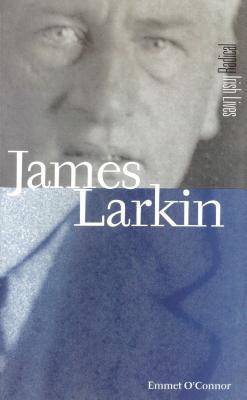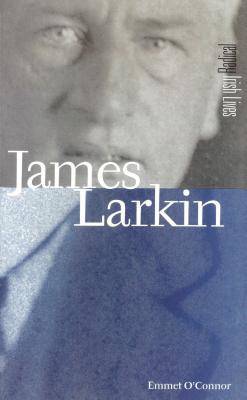
- Retrait gratuit dans votre magasin Club
- 7.000.000 titres dans notre catalogue
- Payer en toute sécurité
- Toujours un magasin près de chez vous
- Retrait gratuit dans votre magasin Club
- 7.000.000 titres dans notre catalogue
- Payer en toute sécurité
- Toujours un magasin près de chez vous
Description
James Larkin (1876-1947) retains a central position in the pantheon of the Irish labour movement. In the popular consciousness he is most commonly linked to his role in the epic 1913 Dublin Lockout and to his turbulent leadership of the Irish Transport and General Workers' Union. Less well known is his role within international communism and his attempts to establish a significant socialist presence in southern Ireland during the 1920s.
In general, labour historians have been kind to Larkin and his style of leadership, which was often abrasive and dictatorial, has often been portrayed as a form of improvisation engendered by contemporary exigencies. In this important new biography of Larkin leading labour historian Emmet O'Connor radically reassesses the man and asks whether he should be viewed as a "hero" of the working class, or as a "wrecker" whose difficult personality was detrimental to both trade unionism and an emerging Irish communist movement.
O'Connor uses new archival sources, including declassified Soviet Union and FBI files, to cast new light on Larkin and on his relations with international communism. He aims to uncover the motivation behind Larkin's public persona, and to assess the reality obscured by the myth.
In general, labour historians have been kind to Larkin and his style of leadership, which was often abrasive and dictatorial, has often been portrayed as a form of improvisation engendered by contemporary exigencies. In this important new biography of Larkin leading labour historian Emmet O'Connor radically reassesses the man and asks whether he should be viewed as a "hero" of the working class, or as a "wrecker" whose difficult personality was detrimental to both trade unionism and an emerging Irish communist movement.
O'Connor uses new archival sources, including declassified Soviet Union and FBI files, to cast new light on Larkin and on his relations with international communism. He aims to uncover the motivation behind Larkin's public persona, and to assess the reality obscured by the myth.
Spécifications
Parties prenantes
- Auteur(s) :
- Editeur:
Contenu
- Nombre de pages :
- 150
- Langue:
- Anglais
- Collection :
- Tome:
- n° 3
Caractéristiques
- EAN:
- 9781859183397
- Date de parution :
- 31-01-03
- Format:
- Livre broché
- Format numérique:
- Trade paperback (VS)
- Dimensions :
- 148 mm x 214 mm
- Poids :
- 263 g







